Ongoing heartache after son and husband's deaths
'How I live with grief after losing my son and husband'
- Published
The night she witnessed her husband and seven-year-old son being knocked over and fatally injured by a careless driver is something Anna-Louise Stubbings has replayed over in her mind thousands of times.
Nine years on from their deaths, she is unsure if the process of grieving them has even begun.
Anna, who lives in Cardiff, believes the emotional trauma she went through meant her grief "was never realised".
"Everybody tries to put a timeline on grief… and it doesn't mean anything," she added.
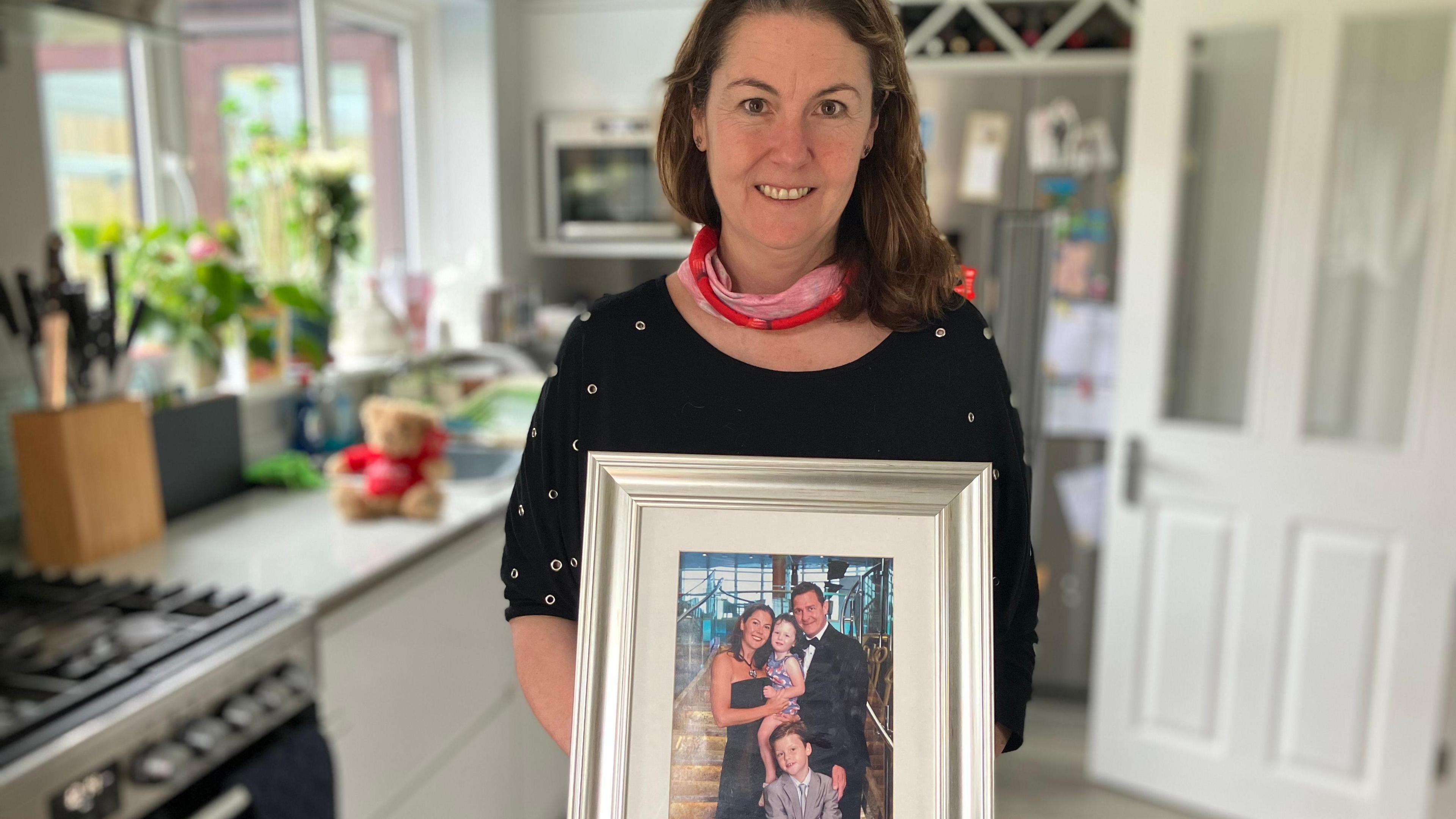
Anna's husband and son died after being hit by a car
What losing my wife taught me about life and loss
- Published15 January 2023
Mark Drakeford 'unprepared for ferocity of grief'
- Published7 February 2024
She said time had, in fact, made the loss feel more real and therefore harder to live with.
Anna now finds herself contemplating more heartache to come.
Five years after losing the boys, she married Zach, who has multiple myeloma, external, a type of bone marrow cancer.
Treatment can often help to control the condition for several years but most cases of multiple myeloma can't be cured.
She said when he was diagnosed 10 years ago he was told he could expect to live for about 10 years.
Recently he has spent weeks in hospital.
"Anticipatory grief becomes more real every day and harder to deal with," she said.
Caring for Zach while bringing up her daughter and grieving for Stuart and Fraser has left her racked with guilt.
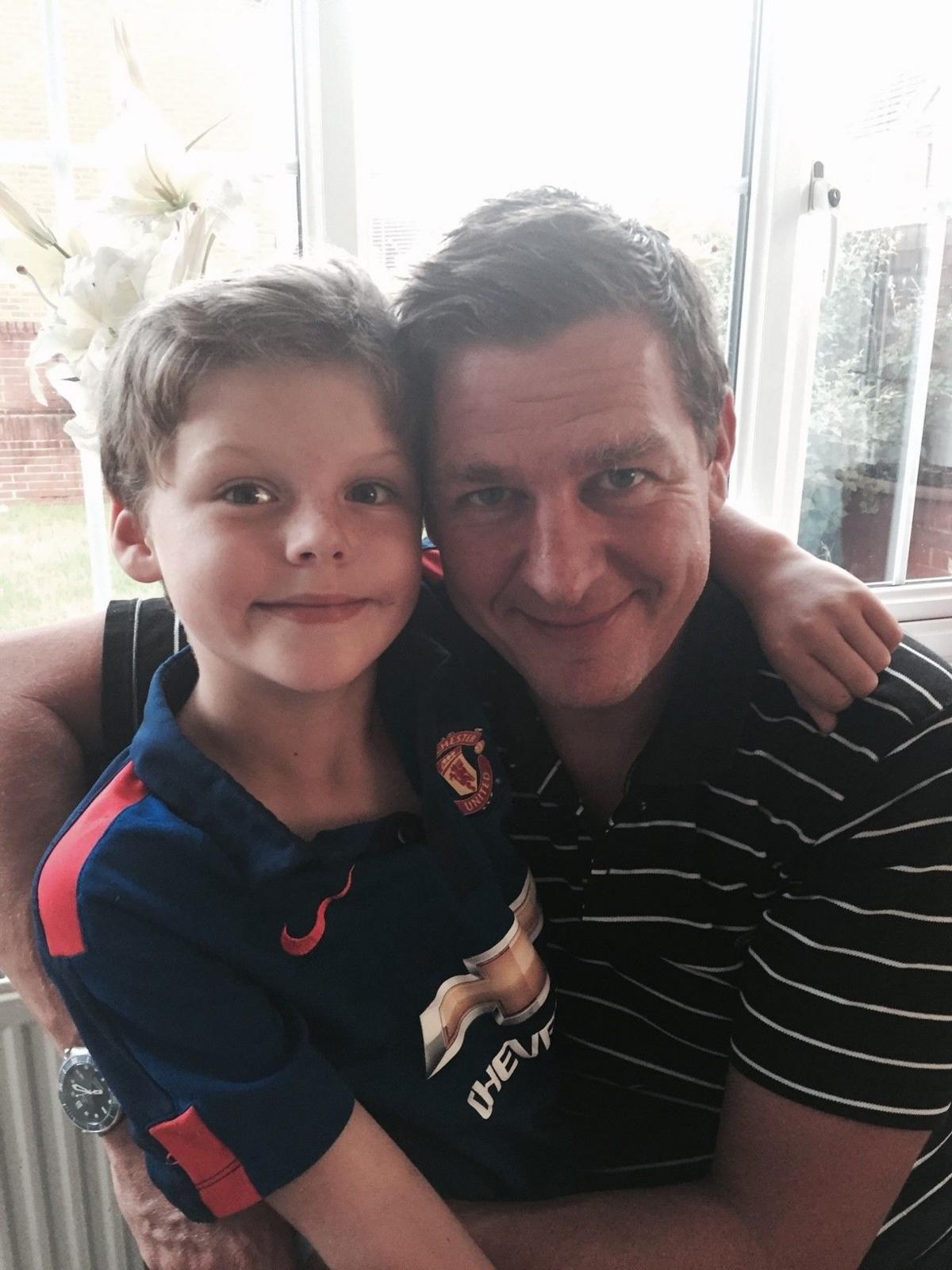
Fraser and his dad Stuart died after being hit by a careless driver in 2015
"I can't help but feel guilty for being with Zach and putting myself and especially Elizabeth through so much pain when we've just experienced so much," she said.
Caring for Zach also leaves her fearing she's neglecting her grief.
"I'm there worrying, concerned and running around after Zach, why aren't I grieving for Fraser at this point? Does that mean that my grief isn't as important as what I'm doing at the moment? And then that guilt comes from that."
Did she hesitate in starting a relationship with someone with Zach's prognosis?
"When he first explained to me about his myeloma I absolutely listened, accepted and then ran away," she said.
"When I said to somebody very recently about Zach being poorly they said 'you knew you were never going to grow old together' and I said 'yes, but did I accept that as a truth?'.
"It goes back to the boys - they're never coming back, they're actually dead and I haven't accepted that yet, so therefore how am I meant to accept that Zach has this condition? I don't think I have.
"How can we accept that pain and that future and more loneliness - I don't think I can go there."
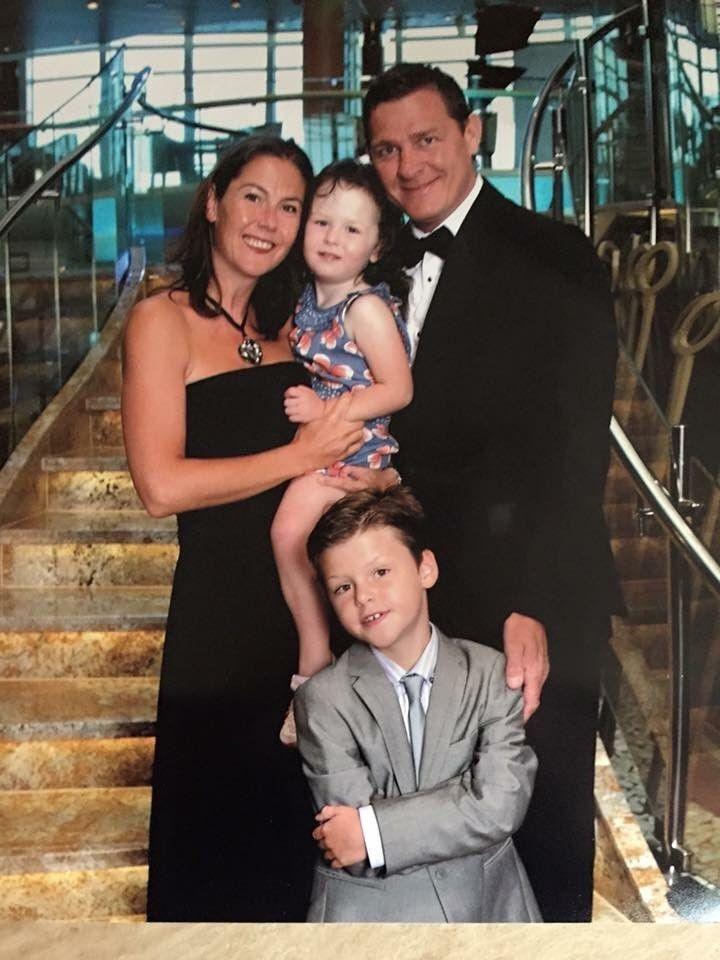
Anna says the trauma of losing Fraser and Stuart has made it difficult to process her grief
Guilt is something Anna has lived with since the night the boys were knocked down.
The family had been walking back from a Christmas party, Anna pushing a then three-year-old Elizabeth in her pushchair, when Stuart and Fraser were hit by a car while crossing the A4119 at Talbot Green, Rhondda Cynon Taf, on 6 December 2015.
The driver was later jailed for 16 months after admitting two counts of causing death by careless driving without due care and attention.
"Sadly the boys were very far apart [on the road] through the impact of the car," said Anna.
"My memory at the time was that I was running between the boys... and I really did beat myself up for months - why wasn't I just looking after my son? Why did I not prioritise my son over my 43-year-old husband? Why was I running back and forth?"
She said a year later she discovered she had in fact been with Fraser at that time, adding: "But then the other guilt came in.
"Why wasn't I running back and forth? Why wasn't I torn? Why did I stay with Fraser?"
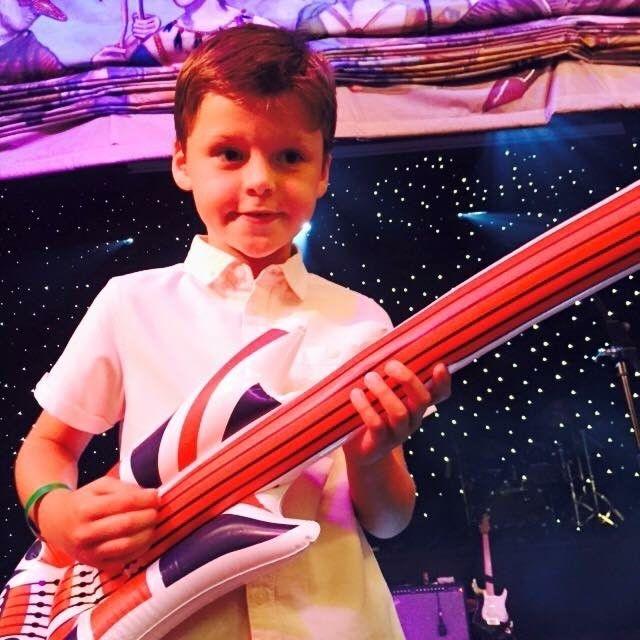
Fraser and his dad were killed when walking back from a Christmas party in 2015
She said this sense of conflict was similar to what grieving for both her husband and son simultaneously can feel like.
"The loss of both of them was so different, but coupled together - and that led me to the extremes of worrying when I was grieving for one and not the other," she said.
"That whole guilt of 'why am I grieving for Fraser on this day and I'm not grieving for Stu on this day?'."
Her grief for each of them feels very different.
"With Fraser its grief for my son missing out… for the loss of a future," Anna added.
"Then with Stu you grieve for the loss of your love, your partner, the only person that could have understood what the loss of Fraser would mean to me.
"So I had nobody to hold my hand, or guide me, or be there, argue with or throw plates at for the pain I was going through."
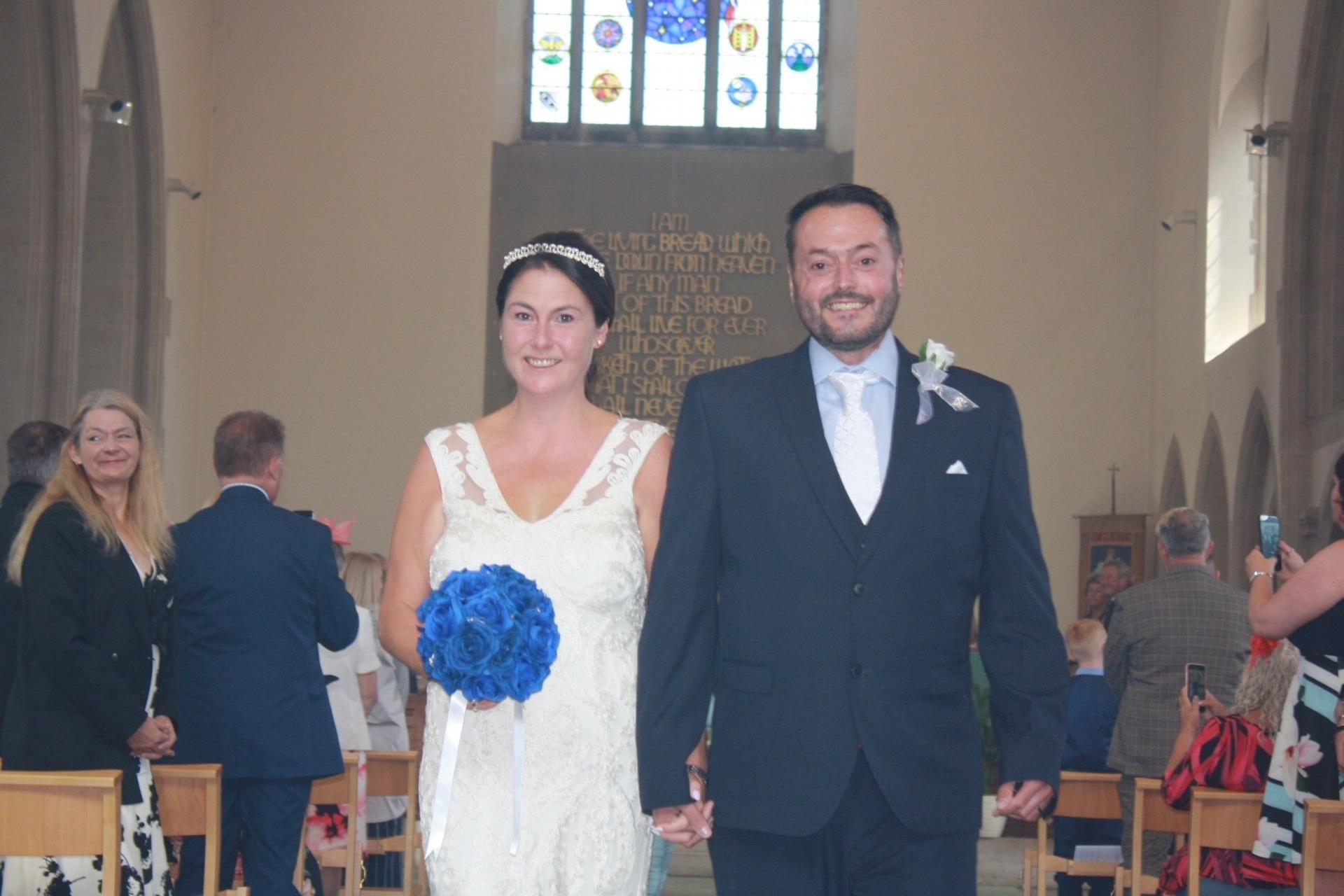
Anna and Zach, who has received a stem transplant, met through her organ donation charity
She said the past nine years had been the loneliest of her life.
"And it is complete loneliness because nobody can know what anyone else is going through," she said.
Having friends who don't feel they can confide in her about their problems because she is already dealing with so much can also lead to feelings of isolation.
She also worries about burdening others with her painful emotions, adding: "I find it very difficult to open up, I really do.
"At the time, because of the driver's prosecution I wasn't allowed to talk about facts of what actually happened on the night… that allowed me an excuse not to talk to people.
"I could give a level of protection to loved ones that they didn't have to experience what I'd experienced that night and therefore the mask was put on, and I find it really difficult to take that mask off."
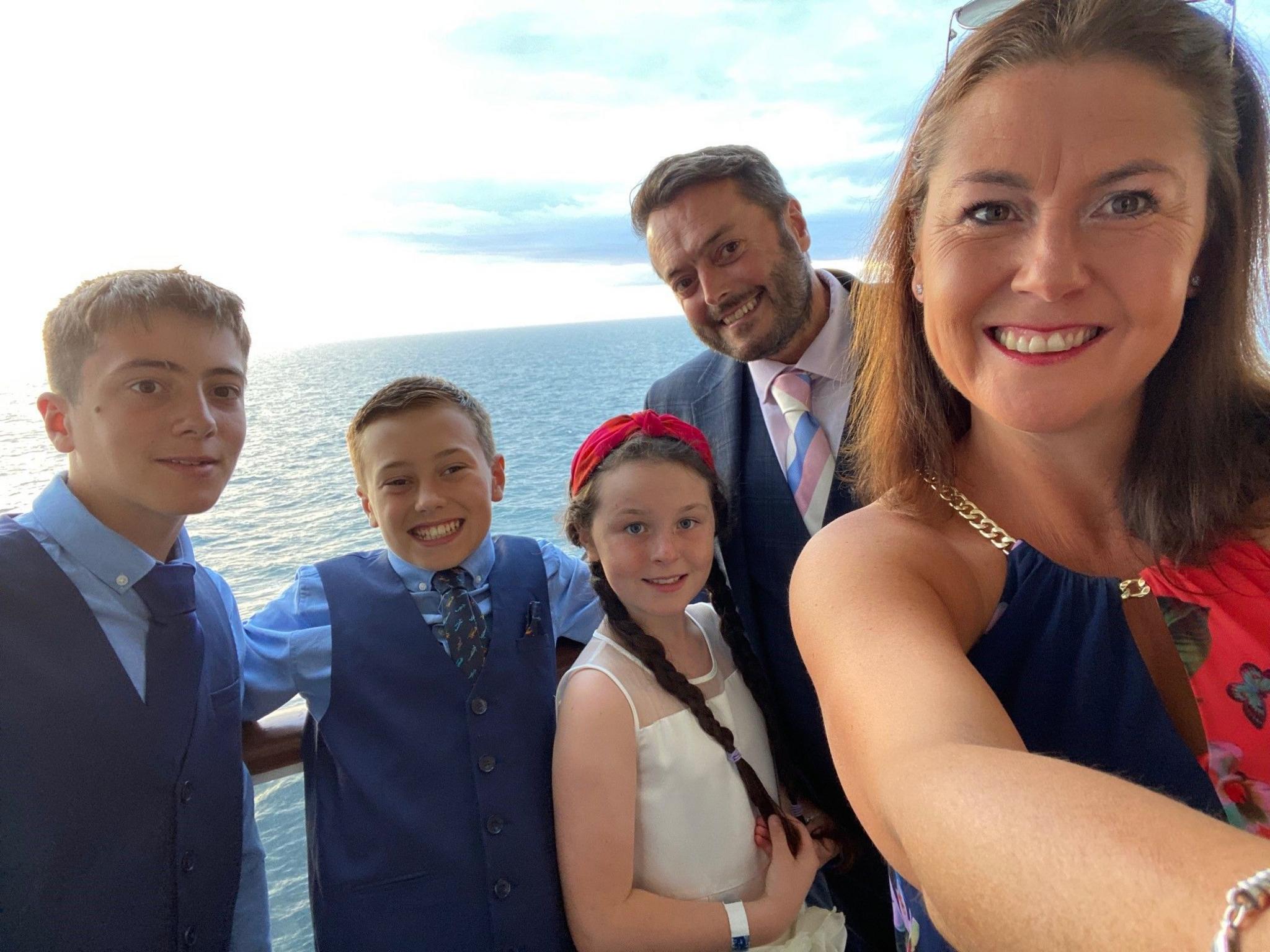
Zach, pictured here with his sons, Elizabeth and Anna, has been living with multiple myeloma for 10 years
There have been times when people she knows have tried to avoid her.
"Sometimes I'm really happy about those, the walking across or pretending they haven't seen you in a supermarket, because actually I don't want to know," she said.
She can find people asking how she is really difficult to deal with.
"I will just reply 'yes, fine' when actually there is nothing there in my heart that is fine at all," she said.
"I sometimes think 'why are you asking that question? Because you want that answer?'
"You don't want me to say 'actually I'm having a really bad day today' which is what I want to scream every day."
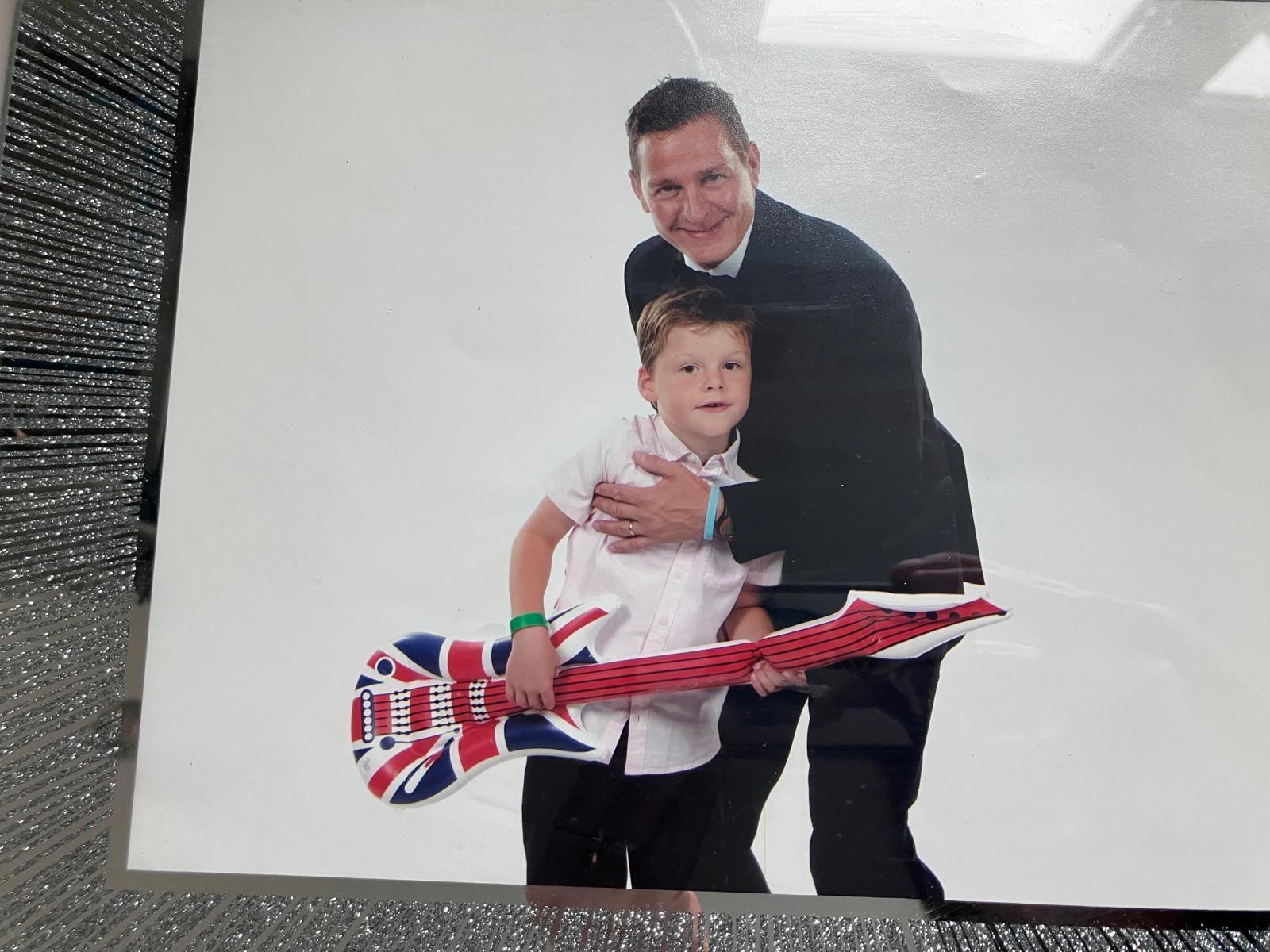
Anna says the grief she has for her husband and son feel very different
So, what is the best way to support someone who is bereaved?
"You need to talk to the person and find out what they actually need," said Anna.
"No two people are the same at all."
She said rather than people saying "I'm there if you need me", she preferred someone to offer specific plans with options.
For example - "I'll be there on Thursday morning so either we can go out for a walk or go out for a coffee or if you don't want to see people, we can just have a coffee inside".
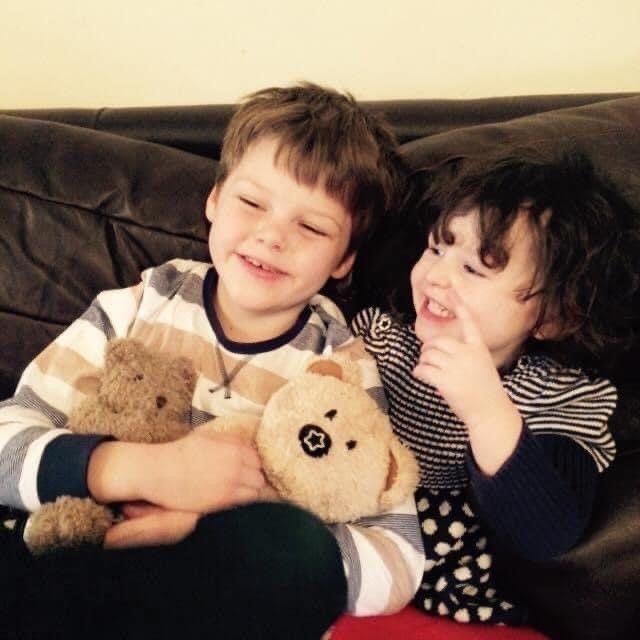
Fraser's sister Elizabeth was just three when her brother and father were killed
For Anna, keeping busy has always been a coping mechanism.
Fraser's organs and Stuart's tissue were donated and days after their deaths she launched the organ donation charity Believe.
Now she is in the process of setting up Wales' first memorial garden for those involved in organ donation.
Her charity has been donated a large area of land at Thornhill North Cemetery in Cardiff and she plans to use it to reflect, support, educate and honour those involved in organ donation.
It will include a memory tree where each donor in Wales - last year there were 64 deceased donors and 43 living donors - is honoured with a heart-shaped leaf.
She also wants to create a wall with the handprints of many Welsh celebrities and sporting heroes.
Visitors will be encouraged to find their matches, just like people waiting for donor organs must find theirs.
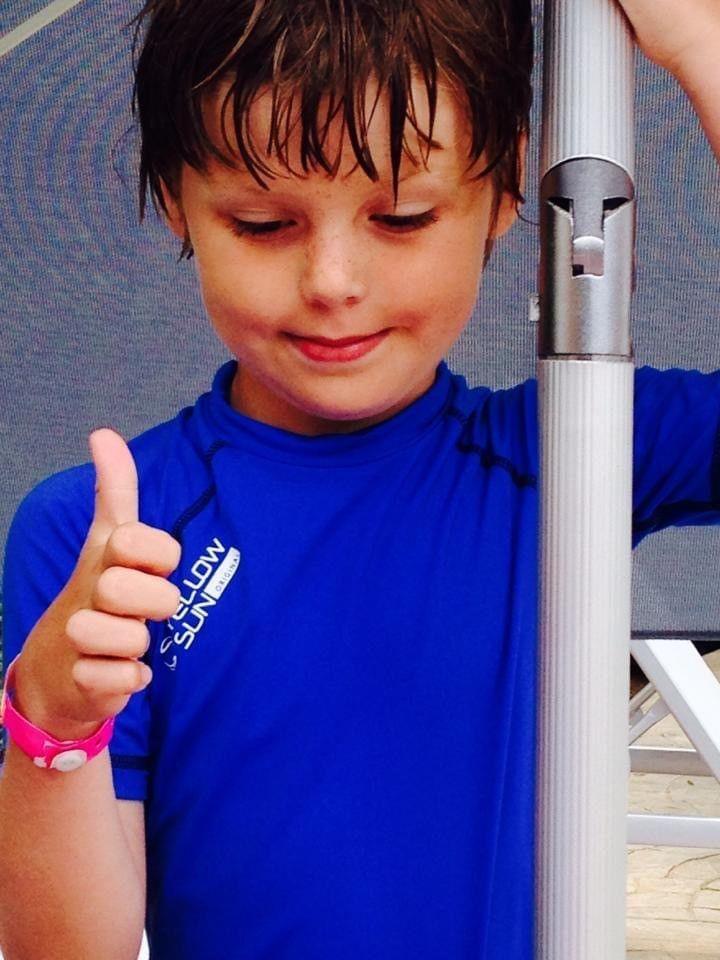
Fraser's organs were donated following his death
Another focus for Anna is living in the moment.
"It is about appreciating life and appreciating every day, not planning a future but appreciating what life is giving us today," she said.
But she is also honest about the daily difficulties she faces.
"This is an incredibly tough time for us and this is the time I need to open up some more," she said.
"I know that we'll find a way but yes, it's hard."